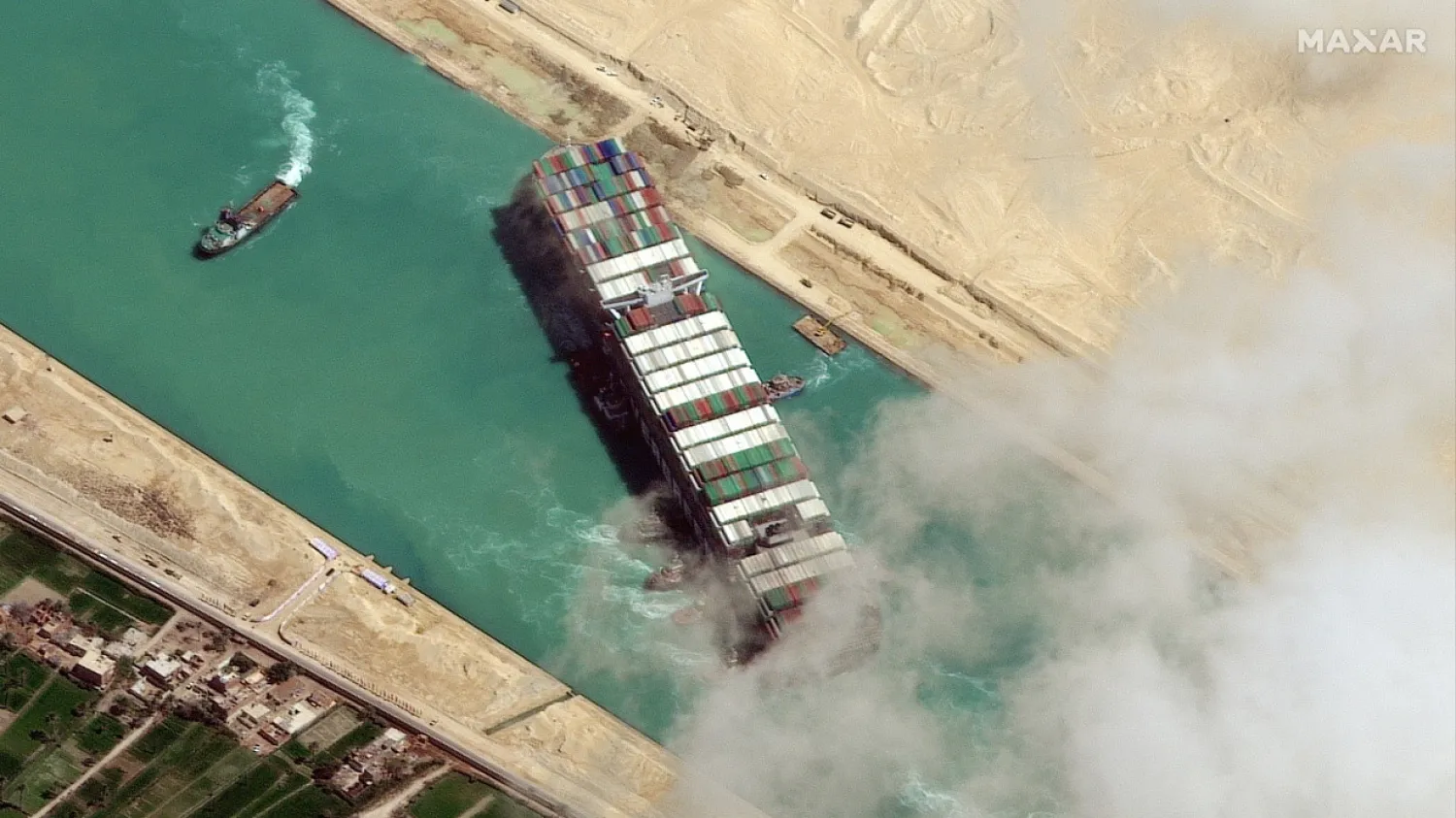Two crew members aboard the cargo vessel that blocked global shipping in the Suez Canal last month will be allowed to return to India owing to urgent personal circumstances, the Suez Canal Authority (SCA) said on Thursday.
The 200,000-ton MV Ever Given has been anchored in a lake between two sections of the canal since being dislodged on March 29 and is caught in a legal dispute linked to a $916 compensation claim made by the SCA against the ship's Japanese owner.
The SCA said it was "sparing no effort to ensure the success of the negotiations" and was cooperating with the shipping agency to make sure the crew's needs are provided for.
The 400-meter-vessel was stuck in the canal for six days, holding up passage of more than 400 vessels.
Maritime data company Lloyd's List said the blockage by the vessel, longer than four football fields, held up an estimated $9.6 billion-worth of cargo between Asia and Europe each day it was stuck.
Egypt also lost between $12 and $15 million in revenues for each day the waterway was closed, according to the SCA.
The Suez Canal earned Egypt just over $5.7 billion in the 2019/20 fiscal year, according to official figures -- little changed from the $5.3 billion earned back in 2014.









